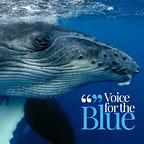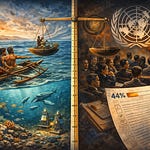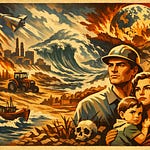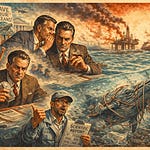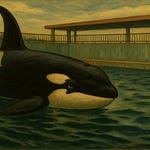What if Antarctica’s ice gave way?
I’ll be honest. I’ve been struggling with this story. How do you make people care about a frozen continent thousands of miles away?
The truth is that if Antarctica’s ice gives way, it will not feel distant at all. It will reach every coastline, every harvest, every family. The warning signs are already here.
In the 2020s, Antarctic sea ice fell to record lows. The Thwaites Glacier, sometimes called the “Doomsday Glacier,” has retreated nearly 14 kilometres in the past 30 years and is losing around 80 billion tonnes of ice every year. Across the continent, Antarctica is shedding about 150 billion tonnes annually. That is the equivalent of draining a lake the size of London covered in ice 20 metres thick, year after year.
If these trends continue, scientists warn the 2030s or 2040s could be the decade when the brakes fail completely. Ice shelves, the floating doorstoppers that hold back the glaciers, could shatter. When that happens, glaciers the size of countries surge into the sea. Sea levels rise. Coastal cities scramble. Governments falter.
The consequences would be immediate. In Jakarta, families would be wading through floodwater in their homes. In Miami, entire streets would vanish at high tide. In Lagos, fishermen would watch the shoreline slip away.
Geopolitics would change too. Nations on higher, cooler ground such as Canada, Russia, and Scandinavia would suddenly look like safe havens. Investment would pour north, while countries facing the worst impacts demand justice for decades of broken climate promises.
This is not science fiction. It is a glimpse of what happens if we allow Antarctica to keep unravelling. The ice is already melting faster than models predicted. The question is whether we act quickly enough to slow it, or whether we leave the largest frozen reservoir on Earth to redraw the map for us.
A Note From Me
I write and record Voice for the Blue to uncover the ocean stories the world too often ignores, stories like this, where war collides with wildlife.
If you believe this work matters, please consider becoming a paid subscriber. An annual subscription keeps these investigations free for those who can’t pay, and helps ensure these stories are told at the scale they deserve.


